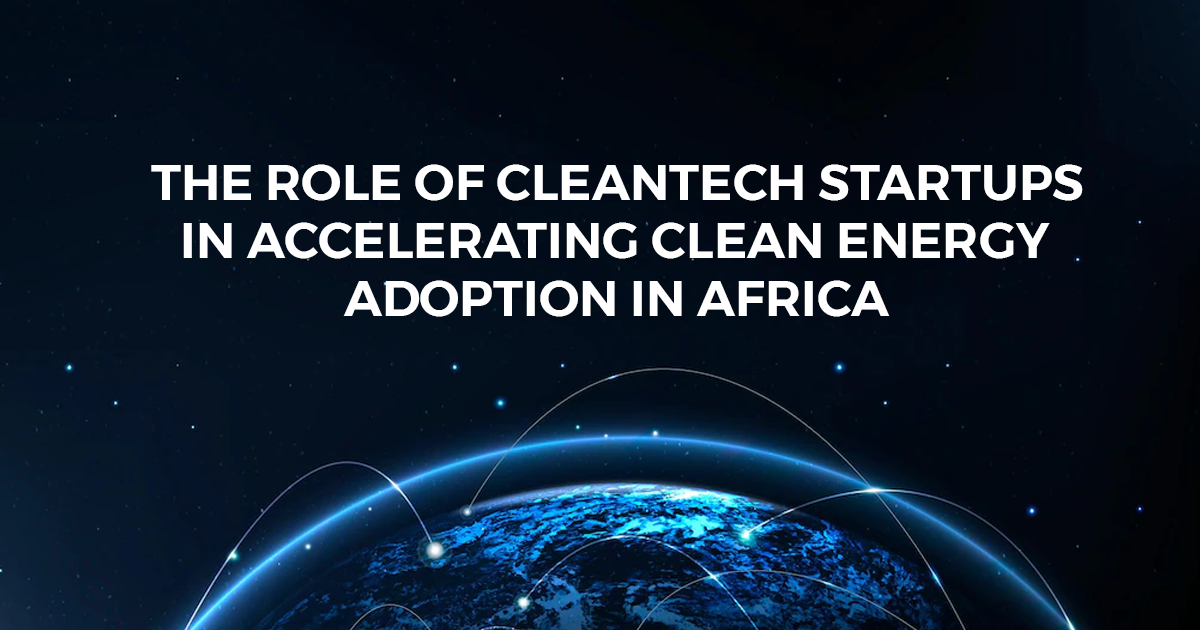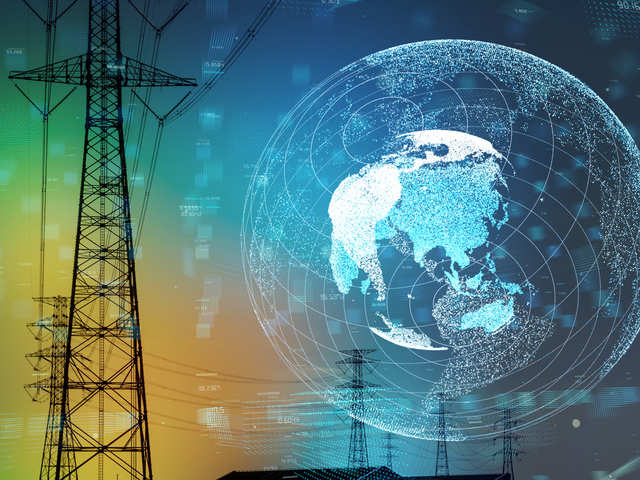The Role of Cleantech Startups in Accelerating Clean Energy Adoption in Africa

Over 770 million people in Africa lack access to electricity, according to a 2019 report by the International Energy Agency, and by 2030, half of the world’s population will be without electricity in just seven countries: the Democratic Republic of the Congo, Nigeria, Uganda, Tanzania, and Niger, with Pakistan being the only country outside Africa. The World Bank report is also worrisome, where modern forms of clean energy, such as renewable and natural gas, currently account for less than 4% of the continent’s energy mix. The majority of the continent – roughly 60% – continues to rely on traditional biomass for cooking and heating, with just over a third relying on fossil fuels. Notwithstanding its potential, Africa’s adoption of clean energy has been slow.
Meanwhile, according to the International Renewable Energy Agency (IRENA), Africa has the potential to become a global leader in renewable energy. The continent has an estimated 2,000 gigawatts (GW) of renewable energy resources, which is more than double the continent’s current installed capacity. However, Africa is currently lagging behind other regions in terms of renewable energy development. The continent currently has just over 100 GW of installed renewable energy capacity, accounting for about 4% of the global total.
One of the obvious reasons for the continent’s slow adoption of cleaner energy options is that the population is growing faster than the infrastructure can keep up with. Another is that many African countries are landlocked, making it difficult to transport resources. Furthermore, Africa has been slow to implement policies and regulations that would encourage the development of renewable energy. Another is that the continent has been reliant on fossil fuels for its energy needs for too long, and has been slow to invest in renewable energy.

Factors Supporting Africa’s Clean Energy Adoption Quest
Several other factors are working in Africa’s favor: the continent has vast untapped renewable resources such as solar, wind, hydropower, and geothermal. Also, there is a growing awareness of the need to develop clean energy infrastructure. These resources could provide Africa’s growing population and economy with a dependable and affordable source of energy.
Furthermore, several African countries have adopted ambitious renewable energy targets over the years and are beginning to invest more in renewable energy. Several initiatives are also underway to assist Africa in hastening its transition to renewable energy. These include the Africa Renewable Energy Initiative (AREI), a multi-stakeholder effort to increase investment in renewable energy in Africa. There are also some private-sector initiatives, such as the Africa50 Fund, a $10 billion fund used to fund renewable energy projects in Africa. Africa also has several world-class renewable energy resources that can be used to power the continent’s growth. The Sahara Desert, for example, has the potential to generate enough solar energy to meet the continent’s energy needs many times over.
Africa also has significant wind resources that are largely untapped. The World Bank estimates that Africa has the potential to generate up to 1,700 GW of wind power. Another vast resource that is largely untapped is hydropower. Africa can produce up to 150 GW of hydropower.
Several countries, including Kenya, South Africa, Egypt, and Morocco, have made significant investments in clean energy. At the international level, there is growing recognition of the need for Africa to transition to a low-carbon development path, particularly because, despite being the region with the least responsibility for global carbon emissions, Africa is inexcusably positioned to suffer the most from global warming.
Investments in Africa’s Renewable Energy Sector

It is estimated that by 2030, Africa will require $29 trillion in infrastructure investment. This includes $2.5 trillion in energy infrastructure investment.
The World Bank announced the increase of its clean energy financing in Africa to $12 billion in 2020. In addition, the African Development Bank launched a $1 billion facility in 2015 to support clean energy projects on the continent, and the US has pledged $7 billion to support clean energy development in Africa.
Countries accounting for more than 70% of global CO2 emissions committed to reaching net zero emissions by 2050 as of May 2022. Twelve African countries, accounting for more than 40% of the continent’s total CO2 emissions, have similar mid-century targets.
Eventually, these ambitions are indirectly charting a new course for the continent, where nearly all nations have signed on to the Paris Agreement on Climate Change, to leverage technology to accelerate the transition to clean energy.
The African clean energy tech startup ecosystem is still in its infancy, despite a recent surge in investment and activity. This is largely due to a growing awareness of Africa’s need for clean energy solutions, as well as the continent’s vast untapped potential in this area. According to a Weetracker report, African cleantech startups raised a total of $803 million across 124 deals between 2018 and 2021, for an average of $6.5 million per deal.
A growing number of African cleantech startups are accelerating clean energy adoption across the continent. These startups are working to increase access to clean energy technologies while developing innovative solutions to the continent’s energy challenges.
Furthermore, these startups are working to educate and engage Africans about the benefits of clean energy and how they can make the switch to cleaner, more sustainable options to help the continent build a more sustainable future.
A look into the African Cleantech Startups
Cleantech startups, such as M-KOPA in Kenya, Nigeria’s Daystar Power, Tanzania’s Wassha, Senegalese Oolu, Easy Solar from Sierra Leone, Rwanda-based OffGridBox, Ethiopia’s HelloSolar and Ghana’s Massira among others have risen to provide much-needed energy access in rural areas. Another example is the creation of innovative business models such as PAYG (pay-as-you-go), which make clean energy more affordable and accessible. In terms of investment, there has recently been a surge of interest from impact investors and venture capitalists, though the amount of capital flowing into the sector remains relatively small when compared to fintech and e-commerce.
The Climate Corporation, Engie, and Energize Ventures are among the most active investors in the space. The majority of African clean energy tech startups are focused on off-grid solutions like solar home systems and microgrids. However, there is a growing number of startups working on energy storage, renewable energy generation, and energy efficiency innovations.
In conclusion, despite these commitments, Africa’s current state of clean energy is far from ideal. However, with the right policies and investments in place, Africa has the potential to become a global leader in the transition to clean energy, but for that to happen, Africa must increase its investment in the sector. This will necessitate a collaborative effort on the part of both the public and private sectors. The government should create an enabling environment for renewable energy development. This includes putting in place policies and regulations that encourage investment in renewable energy. African countries must also attract more private sector investment by offering incentives for private investment in renewable energy in form of tax breaks, subsidies, and other incentives that will make the continent not just ideal for investment in the sector but secure and profitable.
